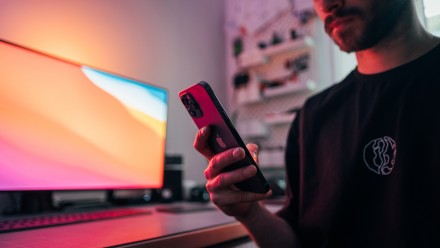Mental health support via telehealth is here to stay – and that can be a good thing
Share
As the pandemic took off in early 2020, office workers around the world suddenly transitioned to ‘at home’ set-ups. The delivery of mental health care was no exception to this change, moving from face-to-face therapy to online.
“This was a monumental shift in behaviour. Before the pandemic, the use of telehealth in psychological therapy was minimal,” says Dr Lou Farrer, psychologist and Senior Research Fellow investigating digital mental health interventions.
Farrer and her team also mobilised quickly as this change took place, wanting to understand how clinicians experienced this transition to online delivery. To this end, they surveyed over 500 mental health professionals from around Australia and New Zealand in May 2020.
“Most clinicians in our study had hardly used telehealth before the pandemic. Even though it was a highly unfamiliar and exhausting way of working for many, the agility they showed quickly transitioning to telehealth was quite remarkable,” says Farrer.
Some findings from the study were what you might expect – clinicians who were more familiar with technology or had used telehealth before, were more likely to be comfortable with using telehealth. Results that were more interesting to unpack, however, examined why clinicians chose not to use telehealth. Those working with clients experiencing complex or severe mental health problems, for example, weren't using telehealth as frequently.
“There was a sense among our respondents that telehealth may not be suitable for people with particular types of mental health problems, or complex mental health problems,” says Farrer.
“This is important to acknowledge because it raises an issue of equity. During lockdowns, virtually no one can access face-to-face services. So we need to be really careful about the judgments that we're making in terms of the suitability of telehealth for particular groups.”
“We shouldn't apply blanket rules about the appropriateness of telehealth. It should be negotiated on a case-by-case basis between clinicians and their clients, because we risk further widening inequities and disadvantaging already vulnerable groups of people if they can’t access the care they need.”
Another issue of equity plays out over access to technology.
“There are members of our community who don't have access to smartphones or the internet. If this digital divide isn’t addressed these populations are going to be left behind as mental health and other health services become increasingly digitised. So we need to think carefully about this to ensure that access is equitable.”
Overall, however, the clinicians in the study were accepting of telehealth. While many will revert back to working face-to-face where possible, they want to retain the option of using telehealth where it is more convenient and appropriate for either the client or themselves.
“There are huge benefits to delivering therapy via telehealth – it’s convenient, can enable therapy to continue when people are sick or unable to leave their home, and can reach people who live in parts of Australia where access to psychologists is limited. The pandemic has normalised telehealth for a lot of people,” says Dr Farrer.
Although many clinicians did indicate they would like more training on how to adapt therapy to better suit online delivery.
Farrer is pleased to see this change in attitude regarding the online interventions.
“It's really important we don't lose the incredible gains that we've made in terms of the use of technology in practice,” says Farrer.
“To support this we need to increase competencies around how to deliver telehealth therapy, develop relevant policies around safe and effective telehealth practise, invest in infrastructure to support telehealth use, and ensure we have a well-equipped digital workforce and community.”
**This study, Telehealth use by mental health professionals during COVID-19, is published in the Australian & New Zealand Journal of Psychiatry.
***If you are interested in finding out more about online mental health, and are a university student, please participate in & share our latest research testing a new video-based program for improving mental health.
By Liz Drummond.











